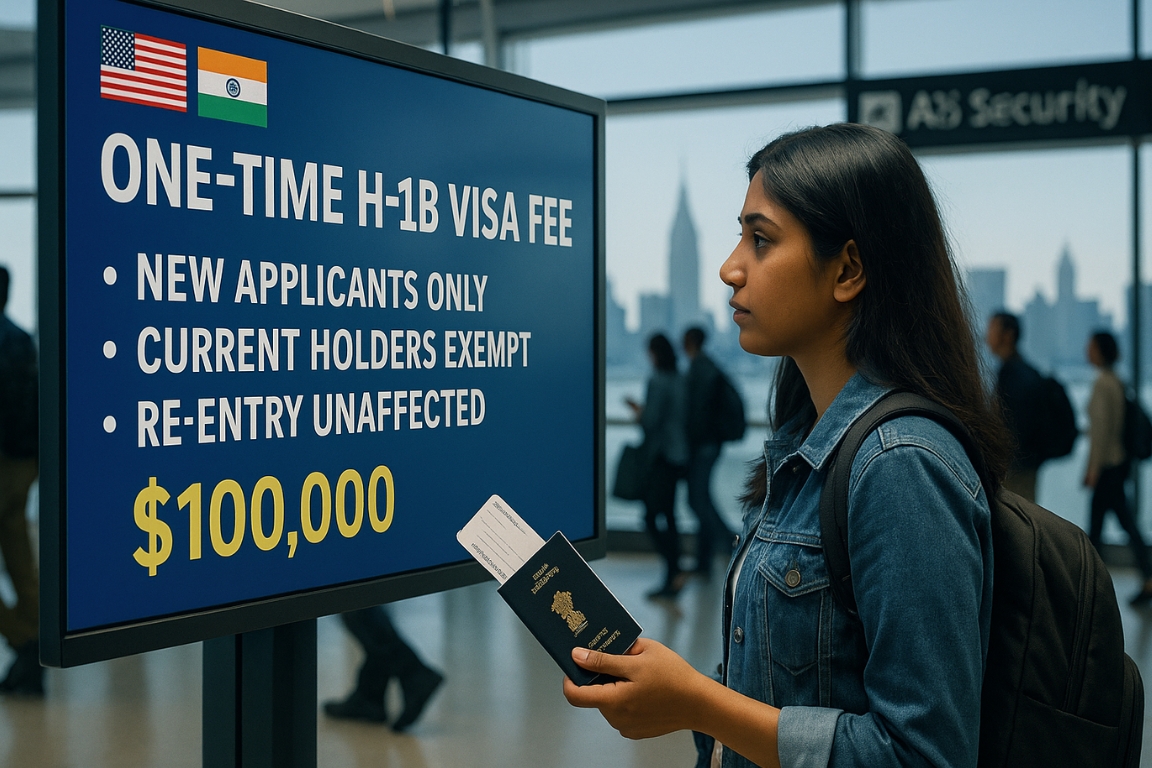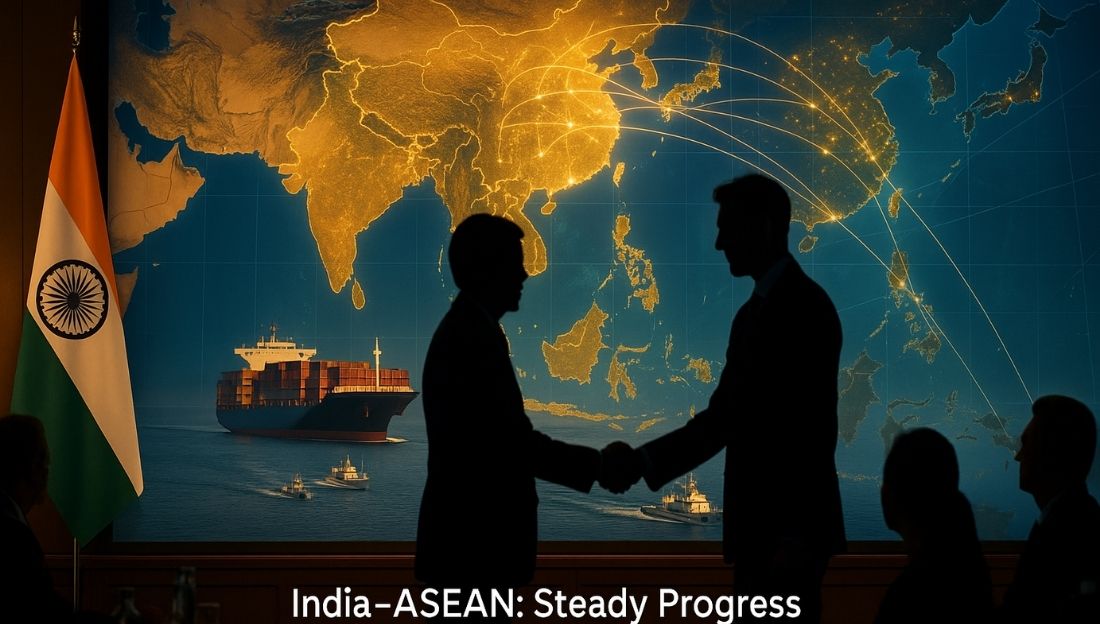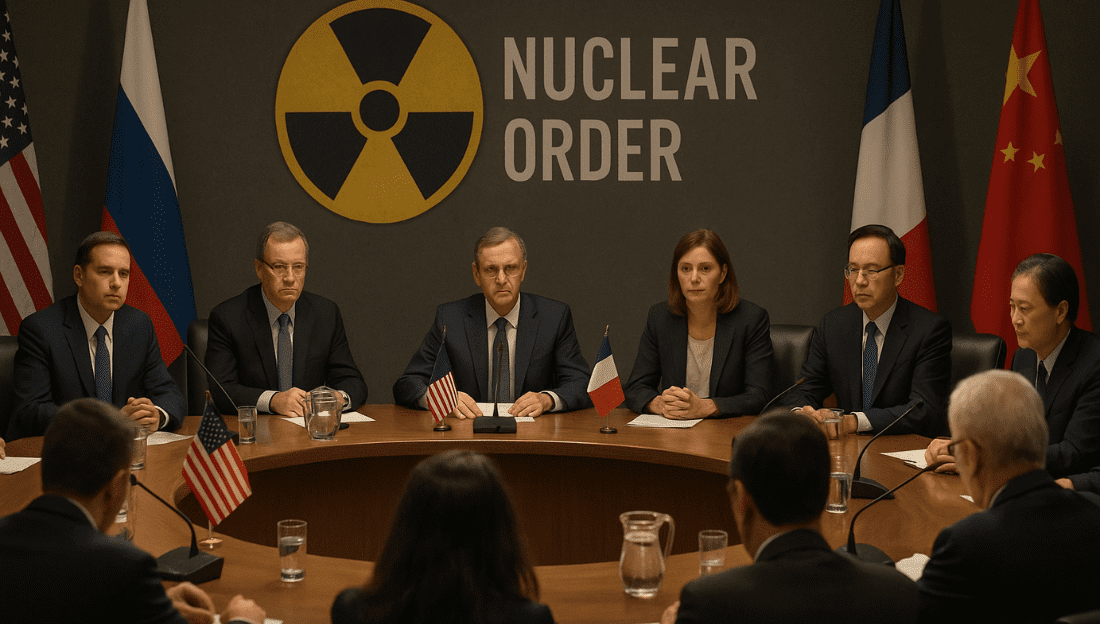The U.S. government has clarified that the recently announced H-1B visa fee will apply only once for new applicants in the upcoming lottery cycle and not for current visa holders or renewals.
Background on H-1B Visa
- The H-1B visa allows U.S. companies to employ highly skilled foreign workers, especially in the IT and technology sectors.
- A large number of Indian professional’s work in the U.S. under this program, making policy changes on H-1B visas a sensitive issue for India.

Key Announcements
- One-time payment: The $100,000 fee will be a single payment required only for new petitions.
- Not annual: Clarified by the White House Press Secretary, contradicting earlier remarks suggesting yearly payments.
- Exemption for current holders: Those already holding H-1B visas, including those currently abroad, will not be charged.
- Applies from next lottery: The new rule will apply to fresh applications in the upcoming visa lottery cycle.
- No impact on re-entry: Visa holders can continue to leave and re-enter the U.S. as before.
Initial Concerns
- Confusion created: Remarks by U.S. Commerce Secretary suggested an annual fee, sparking panic among current visa holders.
- Rush for tickets: Many Indians rushed to book last-minute flights back to the U.S. to avoid additional costs.
- Corporate alerts: Companies like Microsoft, Amazon, and JPMorgan asked their H-1B employees abroad to return immediately.
U.S. Government’s Rationale
- Officials argued that high visa fees would discourage firms from relying on foreign workers.
- The policy aims to push companies to train and employ American graduates instead of depending on overseas talent.
India’s Response
- The Ministry of External Affairs highlighted possible humanitarian impacts, including family separations and disruptions in work.
- India has consistently raised concerns about restrictive U.S. immigration policies that affect skilled workers.
Implications
- For Indian professionals: While the clarification eases immediate worries, higher entry costs may reduce opportunities for fresh applicants.
- For U.S. companies: Increased hiring costs could impact tech giants that rely heavily on Indian IT professionals.
- For India-U.S. relations: Visa policy changes remain a recurring friction point in bilateral ties.
Conclusion
The clarification brings relief to existing H-1B visa holders but introduces a significant financial barrier for future applicants. The move reflects the U.S. administration’s effort to prioritize domestic employment, though it may impact the Indian IT sector and bilateral economic ties.





